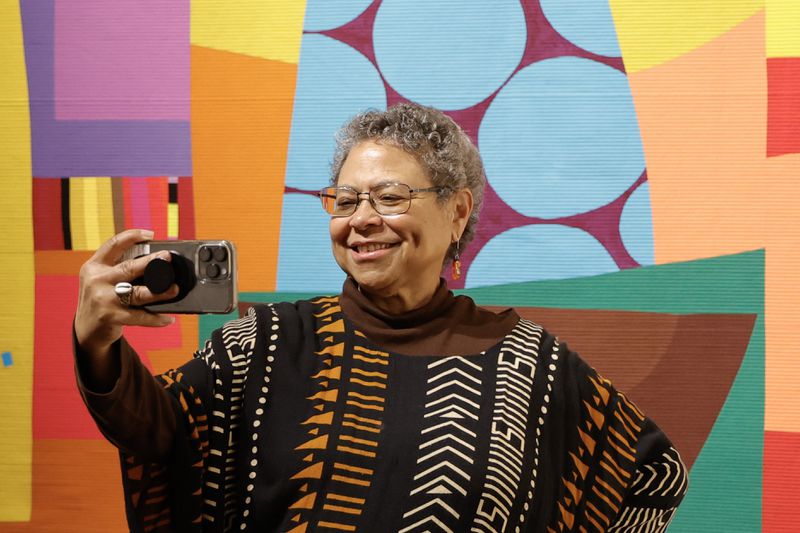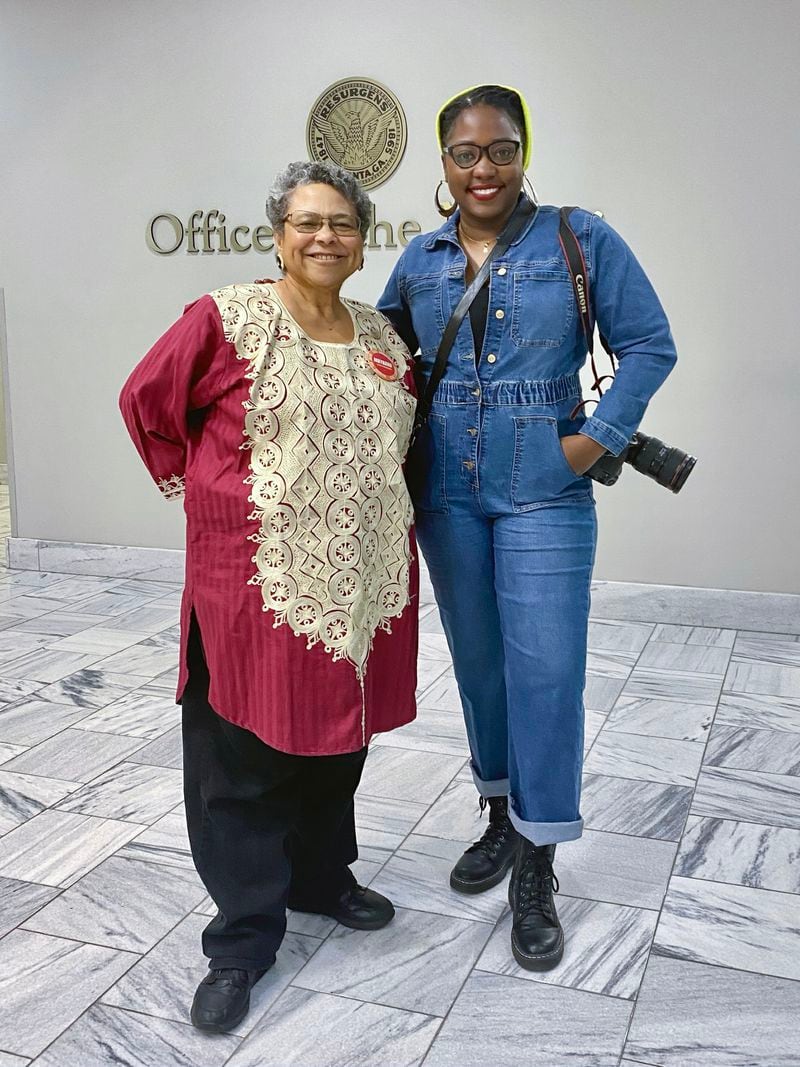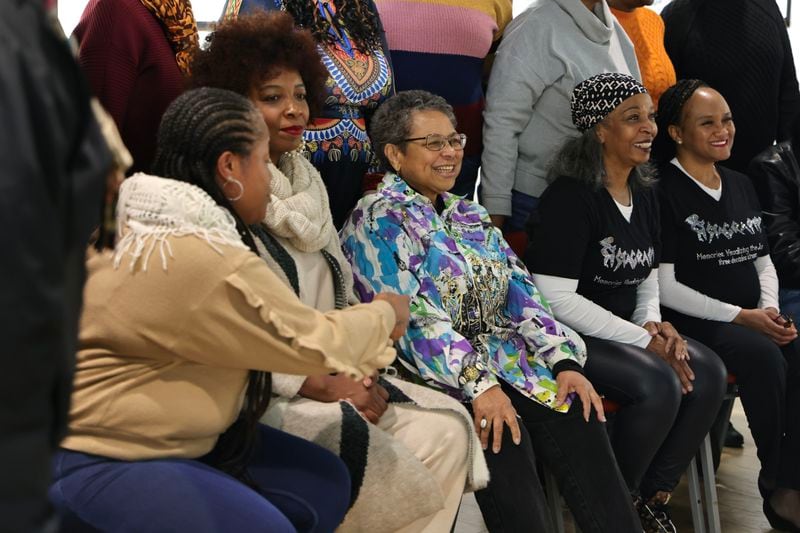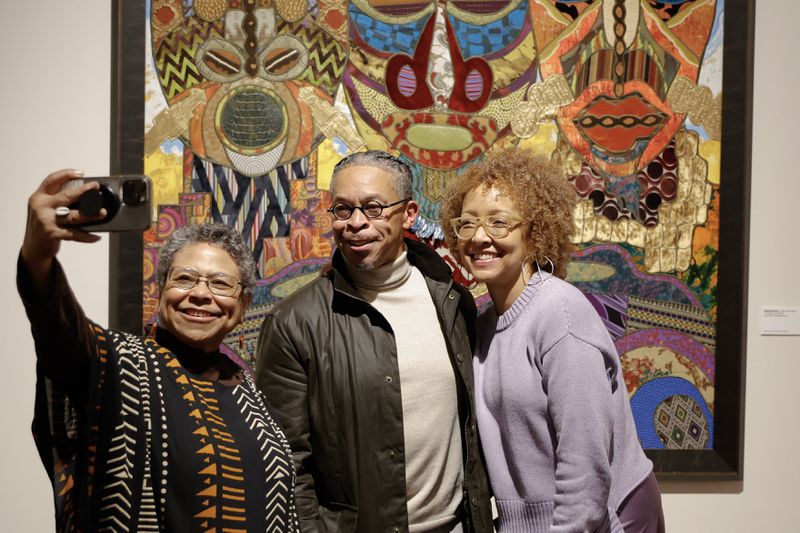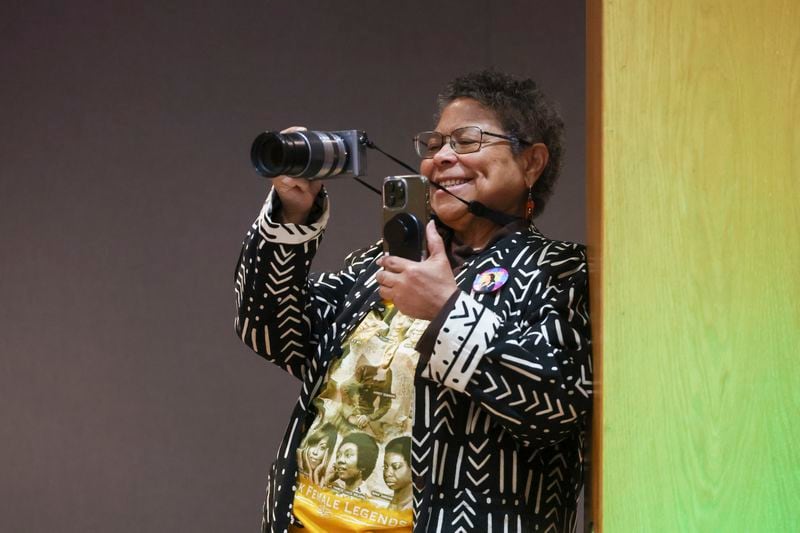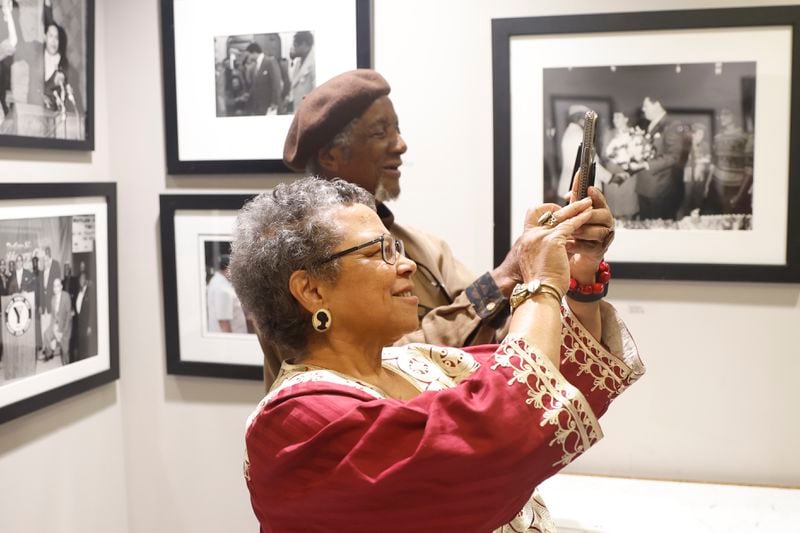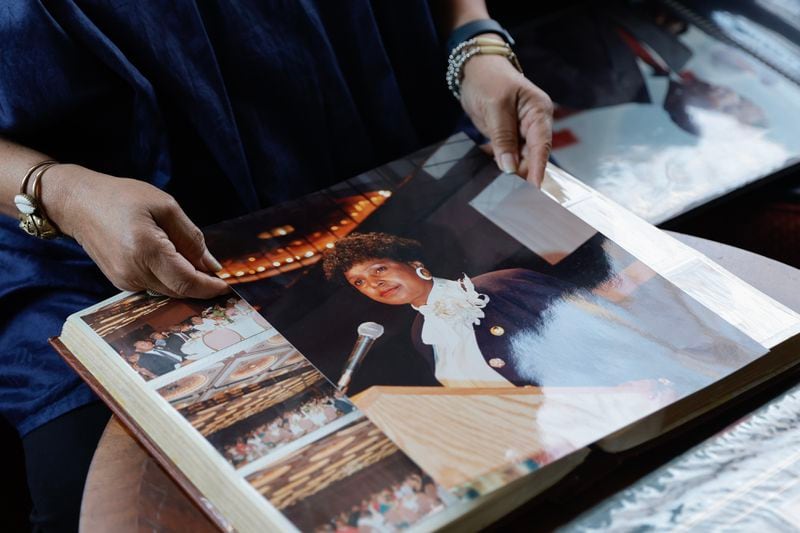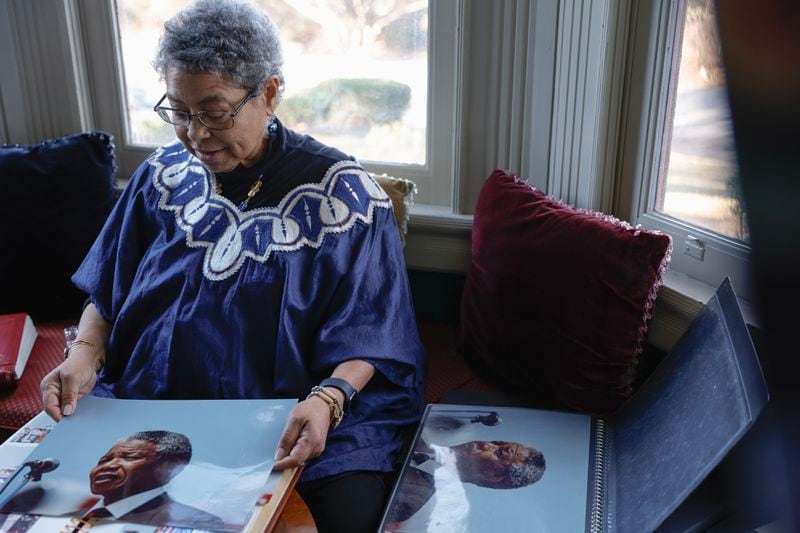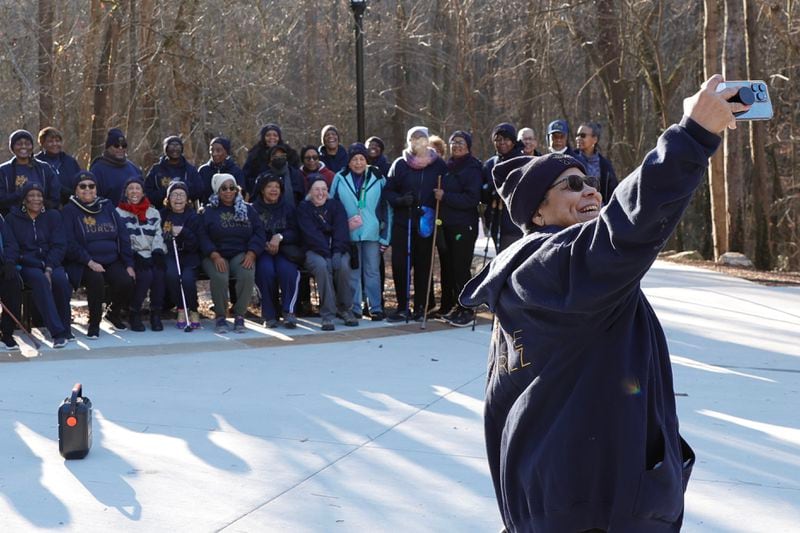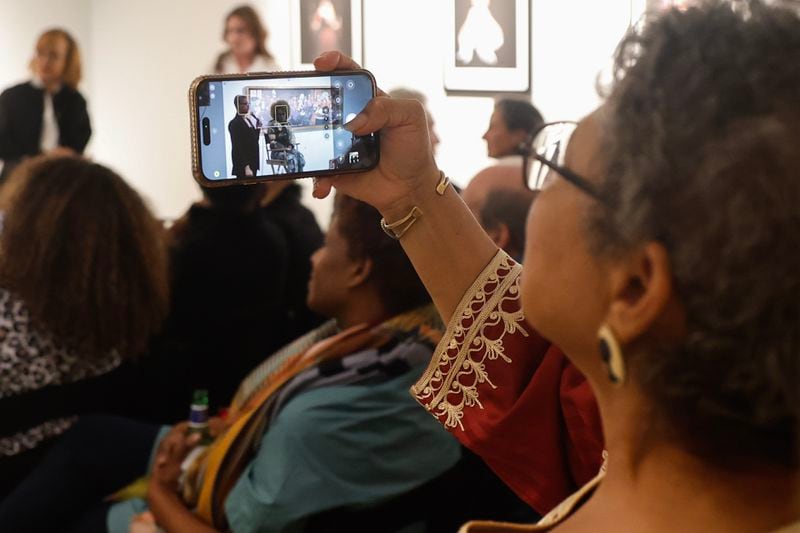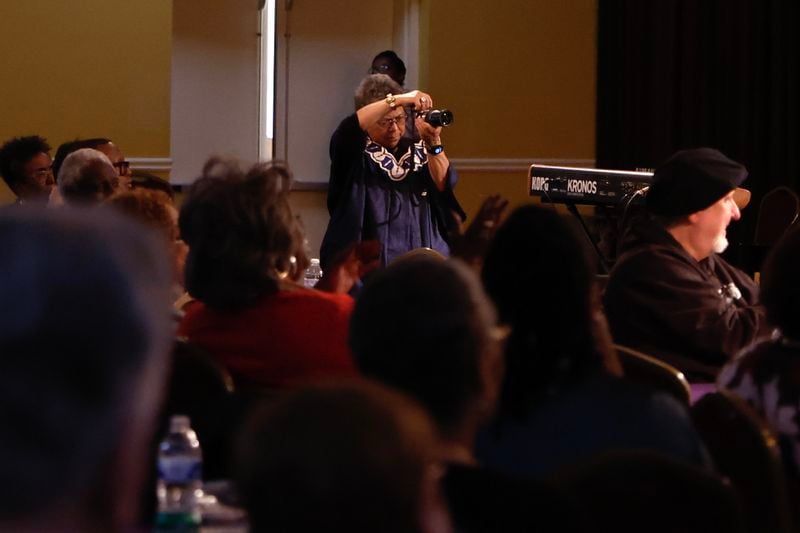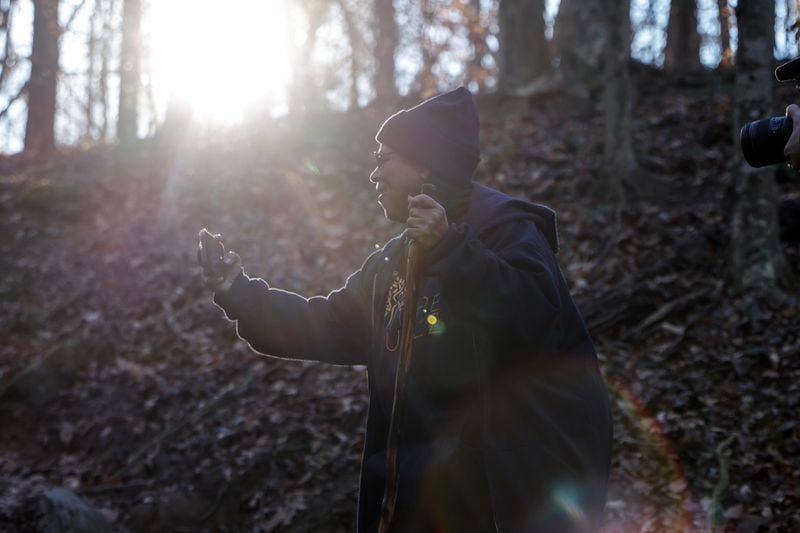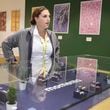If you have ever been to any Black art exhibit, jazz concert or community event in Atlanta, there’s a chance you walked past a short woman with curly gray hair snapping photos.
Her name is Susan Ross and for the past five decades, she has told the story of Black Atlanta through her thousands of images of politicians, artists, literary giants, community leaders, musicians and just plain people.
Most people know her simply as Sue. She isn’t a member of the media and although she worked for the City of Atlanta for almost 40 years, mostly in minority and female business development, photographer was never one of her official titles.
She calls herself the multi-hyphenated: “participant observer - documentary photographer -cultural activist,” just working in the city she refers to as “Magical Atlanta.”
Before my big move from Charlotte, North Carolina, to Atlanta in 2014, I searched online for Black photographers in the city. Although I had a couple of contacts, I was ultimately starting fresh and wanted to make more connections.
I came across the website of Susan J. Ross the Photo Griot. I was mesmerized by her extensive archive and decided to send her an email.
She never returned the email, but I guess the photo gods had better plans for me. A few months later, I saw her at a photo exhibition and introduced myself.
“Hi, my name is Natrice. I’m a photographer and I just moved here. I saw your work online and wanted to introduce myself.”
“Hey!” she responded with a friendly smile.
I don’t remember what she said about the email, but I do remember her saying: “You should come to a Sistagraphy meeting!”
Credit: NATRICE MILLER
Credit: NATRICE MILLER
I already knew that Sistagraphy was a collective of Black women photographers founded in 1993 by Sue and the late Sheila Turner, her friend and fellow photographer.
I happily accepted her invitation and arrived at the campus of Spelman College the next Sunday for the next meeting.
Although I had been working as a professional photographer for nine years at the time, it was the first time that I was in a room full of Black women photographers.
Sue moved to Atlanta from Connecticut as a young girl in the 1960s during the height of the civil rights movement. Both of her parents — Hubert Ross, an anthropologist and Edyth L. Ross a professor of social work — worked at Atlanta University.
Growing up in Atlanta, she lived, worked and played alongside the children of civil rights icons. Just kids in the neighborhood.
“Yoki, is Yolanda King and she was the oldest of the four King children,” Sue told me. “Her younger brother Martin, who we called Marty growing up, and my brother were roughly the same age.”
Credit: Jason Getz
Credit: Jason Getz
I thought to myself: “Wow. Did she just refer to Martin Luther King III, son of the legendary Martin Luther King Jr. as Marty?”
Sue explained that back then, they weren’t celebrities to her.
“They were regular family people,” Sue told me. “That’s why I encourage young people today to take pictures of the folks that they’re involved with because you never know who is going to grow up to be the next leader in Atlanta or in the world.”
Or, who has a story to tell about our people.
At the turn of the last century, W.E.B Du Bois, who at the time was a professor of history and sociology at Atlanta University, exhibited the work of Atlanta photographer Thomas Askew at his “Exhibit of American Negroes” at the 1900 Paris Exposition.
Du Bois’ goal was to dispel cruel stereotypes by exhibiting a series of images to show the progress of Black Americans out of slavery and post-Reconstruction. Askew’s images of Black middle-class Atlantans, including Spelman College students, teachers, doctors and other Black professionals, not only challenged oppressive narratives, but gave Black people hope and pride.
Although Askew’s images consisted mostly of portraits and Sue’s archive is photojournalistic, both have preserved the history of Black Atlanta.
The beauty of Sue’s work is that she doesn’t just observe and take pictures, she is an active member of the very community that she photographs.
She didn’t just take photos of Maynard Jackson, Atlanta’s first Black mayor, she helped to get him elected.
“We went out and organized, got on flatbed trucks and went into the housing projects,” said Sue, who attended Pomona College, Atlanta University and Stanford University. “We did a lot of energetic work for Maynard.”
Her work, documenting the 1996 Olympic Games or portraits of Nelson Mandela and Barack Obama, resides in dozens of books like “Reflections in Black: A History of African-American Photographers,” and her acclaimed 2011 solo exhibition “Sankofa: Looking Back to Move Forward” explored the then 22-year history of the National Black Arts Festival.
Her portraits of Miles Davis are in the permanent collection of Clark Atlanta University Art Galleries and her work can also be found in the collections of the Museum of Contemporary Art in Georgia, Spelman College and in private collections.
But the thing I admire most is her connection to the Atlanta community. The most important people in her images may not be known to the people outside of the state, but through their contributions to Atlanta, they have been a part of change.
Art exhibits with young artists, campaign rallies, community discussions and annual events like the Atlanta Jazz Festival make up a vast majority of her vast archive.
Historical figures and moments change the world, but without documentarians like Sue, we wouldn’t have the imagery to complete the stories. Women like Sue remind me of the importance of the work I do and the power of an image.
She instantly welcomed me into her community and that moment of kindness during my first months in Atlanta directly impacted my growth as a photographer in ways she may not realize.
As Black women photographers, the community is a huge part of our success. In an industry that isn’t always kind to us, it is necessary to build a professional support system to extend advice, opportunities and, most importantly, emotional support.
I have been interested in Black history since I was a little girl.
My mother constantly bought me books that educated and celebrated Black people. My love for the culture has grown exponentially since then. The fact that I get to tell the multi-faceted stories of Black people in my personal work and on many of my assignments for The Atlanta Journal-Constitution is something that I don’t take for granted.
Every time I see Sue’s work, I am reminded of the importance of documenting Black stories. The photograph of the lesser-known politician is just as important as the image of John Lewis.
Sue also reminds me of the importance of representation. When I walk down the street holding camera gear, I see little Black children staring in amazement.
Older Black people yell out, “Go ‘head girl!” when they see me in the sea of photographers at news events.
They don’t know me, or the quality of my work, and honestly, I don’t think that they care.
They just feel proud that someone who looks like them is out in the world doing the work to reshape and reclaim narratives.
Sue is the first Black woman photographer that I met when I moved to Atlanta. Ten years later, not only am I a part of a network of wonderful Black women photographers in Atlanta, but also artists, entrepreneurs, creatives and leaders.
Through imagery and activism, Sue reminds me of the importance of community and how the work of one person can have a lasting impact on the present and future generations.
ABOUT THIS SERIES
The AJC’s Black History Month series focuses on the role of African Americans and the Arts and the overwhelming influence it has had on American culture. These daily offerings appear throughout the paper. More subscriber exclusives on the African American people, places and organizations that have changed the world are available at ajc.com/news/atlanta-black-history
